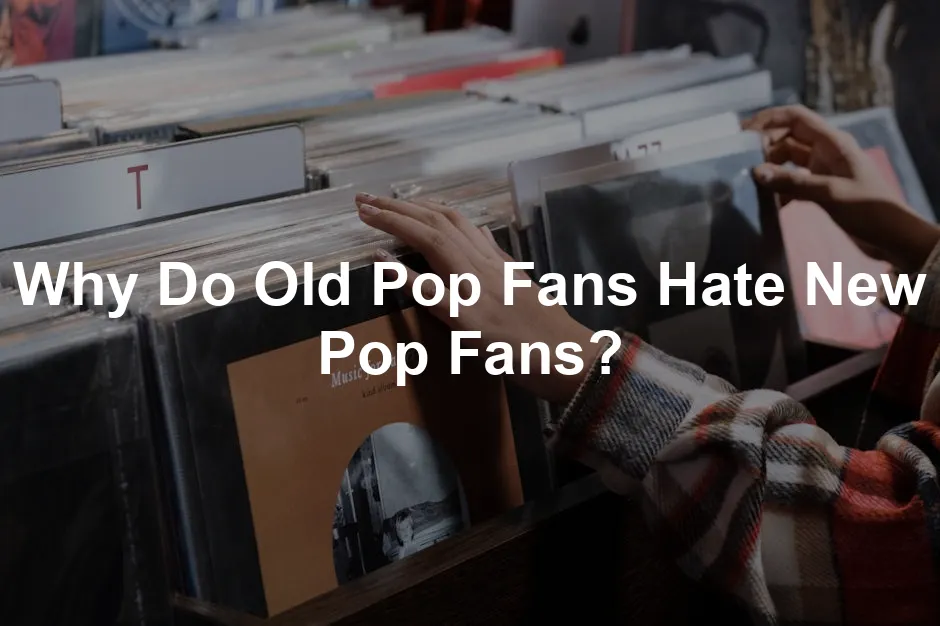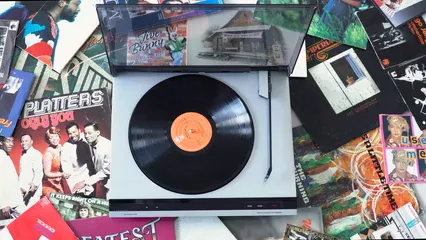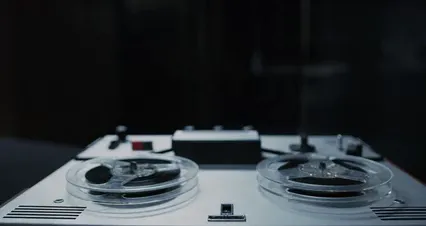
Why Do Old Pop Fans Hate New Pop Fans?
Introduction
In the evolving landscape of pop music, a curious rift has emerged between older and newer generations of fans. This article delves into the reasons why many old pop fans express disdain for the newer enthusiasts of pop culture. And speaking of nostalgia, if you want to relive those golden days, why not grab a Vinyl Record Player to spin your favorite records?
Summary or Overview
The generational divide in pop fandom is a complex phenomenon fueled by nostalgia, cultural shifts, and differing musical tastes. Older fans often cling to the music of their formative years, which shapes their identity and community. In contrast, younger fans are drawn to contemporary trends and sounds that may seem frivolous or lacking substance to their predecessors. This article explores various factors contributing to the friction between these two groups, including the impact of nostalgia, perceived changes in musical quality, and the cultural significance of pop music over time. Ultimately, understanding this dynamic can foster a more inclusive community where both old and new fans can appreciate the evolution of pop music.

The Nostalgia Factor
Understanding Nostalgia
Nostalgia plays a powerful role in shaping musical preferences. For older pop fans, their favorite songs and artists often represent cherished memories. Think about it: those catchy tunes from youth? They’re more than just songs; they’re time machines! They transport listeners back to carefree days, first loves, and unforgettable summer nights. This emotional connection creates a barrier against new music that doesn’t evoke the same feelings.
Older fans often have a deep-seated emotional bond with the artists they grew up with. These musicians provided the soundtrack to pivotal moments in their lives. When reminiscing about the past, older fans might dismiss newer artists as lacking the magic of their beloved idols. It’s not that they dislike new music; it’s more about a protective instinct over their treasured memories. And to keep those memories alive, why not check out Michael Jackson – Thriller (Vinyl) — a classic that never gets old!

Psychologically, nostalgia can be comforting. Music triggers emotions, and older fans find solace in familiar melodies. The songs of their youth often embody a sense of identity and belonging. When faced with unfamiliar sounds, it’s easy to feel overwhelmed and skeptical. After all, who wants to embrace the unknown when the past feels so warm and inviting?
Younger fans, on the other hand, often gravitate towards the latest trends and chart-toppers. Their musical landscape is ever-changing, and they embrace the novelty of today’s pop hits. This generational divide often leads to misunderstanding. Older fans may perceive younger enthusiasts as superficial or shallow, while younger fans might view older fans as stuck in the past. To spice things up for the younger crowd, a Bluetooth Speaker could be just what they need to blast those catchy tunes!
Ultimately, nostalgia is a double-edged sword. It enriches the listening experience for older fans but can cloud their ability to appreciate the evolution of pop music. By understanding this emotional connection, both groups can learn to respect each other’s tastes and celebrate the diversity of pop music in all its forms.
Encouraging discussions around nostalgic experiences can bridge the gap. What were your go-to songs in your formative years? Share your favorite nostalgic pop memories in the comments!
The Impact of Iconic Eras
Defining Moments in Pop History
Ah, the good old days! For many older pop fans, eras like the ’80s and ’90s represent the golden age of music. Who can forget the electrifying beats of Michael Jackson or the catchy hooks of Madonna? These artists didn’t just create songs; they crafted anthems that became the soundtrack to pivotal moments in their followers’ lives. To relive those moments, don’t miss out on Madonna – The Immaculate Collection (CD) — a must-have for any true fan!

Statistics show that music consumption has dramatically evolved over the decades. In 1981, vinyl records dominated, with cassette tapes and CDs slowly taking over. By the 2000s, digital downloads and streaming began to redefine how we enjoy music. This shift has left many older fans nostalgic for the days when music felt raw and authentic.
Shaping Identity Through Music
These iconic eras shaped the identities of fans and created tight-knit communities. Fans gathered around radios, exchanged mixtapes, and shared unforgettable concert experiences. The emotional connections forged during these times are hard to shake off. For older fans, the music of their youth is often tied to feelings of joy, love, and camaraderie. To commemorate those moments, consider a Retro Cassette Player to bring back the magic of mixtapes!
When new pop fans enter the scene, they often gravitate towards the latest hits. This can feel alienating for older fans who associate pop with their cherished memories. The newer sounds may lack the emotional weight they carry, leading to a perceived gap in quality and depth.
The Statistics Speak
A recent study found that 55% of older adults report a strong emotional connection to music from their youth, compared to 35% for younger listeners. This discrepancy highlights the power of nostalgia in shaping musical preferences. Younger fans might find themselves enjoying catchy tunes, but they often miss that rich history and emotional resonance that older fans hold dear. If you’re looking for a way to explore that history, consider picking up Pop Music: The Sound of the Future (Book) — a fascinating read!

So, the next time you find yourself in a heated debate about pop music, remember those iconic eras! They don’t just represent a time; they symbolize a deeply ingrained part of identity for many fans.
What about you? What are your favorite nostalgic pop memories? Share them in the comments!
The Influence of Media and Critics
Shaping Listener Perceptions
Have you ever noticed how much the media loves to stir the pot? When it comes to pop music, the narratives crafted by media outlets can shape our perceptions faster than you can say “Billboard Top 100.” Older fans often feel like they’re in a constant battle to defend their beloved classics against the onslaught of new pop hits that the media raves about. These narratives can create an “us vs. them” mentality. It’s easy for longtime fans to dismiss new music as mere fluff when critics hail it as groundbreaking.

The Role of Music Critics
Music critics, with their powerful platforms, also play a significant role in fan attitudes. They often prioritize buzzworthy trends over genuine artistry. This can lead to older fans feeling sidelined. Remember when every new artist was likened to a legend? It’s like comparing apples to oranges. When critics hype the latest pop sensation, older fans might roll their eyes, thinking, “Where’s the depth?” This perception of superficiality can cement the divide between generations, as newer fans embrace the sound that older fans critique. To test the waters of your musical taste, why not try a Music Trivia Board Game? It could spark some fun debates!
Social Media’s Impact
Social media has added fuel to the fire. Platforms like TikTok and Twitter allow fans to voice their opinions, sometimes with a touch of hostility. When younger fans rave about a catchy new tune, older fans may respond with skepticism, fueled by envy or a sense of loss. The rapid sharing of opinions can lead to echo chambers, where disdain for new pop music grows louder. It’s a cycle that feeds on itself, leading to more division rather than appreciation for the evolution of the genre.
So, what do you think? Are there modern pop songs you believe stand up to the classics? Share your favorites in the comments!
The Role of Gatekeeping
Understanding Gatekeeping
Gatekeeping in music fandom refers to the practice of controlling who gets to be considered a “true” fan. It’s like an exclusive club with a secret handshake! Older pop fans often adopt this role, feeling protective of the music they love. They might think, “If you weren’t there when the magic happened, can you really appreciate it?” This protective instinct stems from deep emotional connections to the artists and songs that defined their youth.

For many, music is not just entertainment; it shapes identities and communities. When new fans embrace contemporary pop, older fans may feel their cherished memories are under threat. It’s as if they’re watching someone else attempt to rewrite the history of their beloved genre without having lived through it. This gatekeeping can create a divide that leaves new fans feeling unwelcome or disrespected. If you’re a fan of that nostalgic vibe, consider a Nostalgia Music Box to keep those memories alive!
Consequences of Gatekeeping
The impact of gatekeeping can be significant. It often leads to a hostile environment for newcomers, who may feel they must prove their worthiness. Imagine showing up at a party, only to find everyone judging your playlist! Older fans might scorn younger fans for not knowing the classics, leading to alienation rather than camaraderie.

Incidents of hostility abound. New fans have reported facing backlash when expressing their love for newer artists. Comments like, “You don’t know real music!” can sting and discourage young fans from participating in discussions. This tension can create a cycle of resentment, where older fans feel justified in their criticism, while younger fans feel dismissed and defensive. To lighten the mood, why not try out a Karaoke Machine for some fun sing-alongs?
Such dynamics not only hinder community growth but also stifle musical evolution. Music is meant to be enjoyed and shared, not hoarded like a prized possession. When older fans gatekeep, they risk missing out on the fresh perspectives and tastes that new fans bring. Instead of fighting over who belongs, let’s embrace a more inclusive culture that celebrates all pop music—old and new!
What are your thoughts on gatekeeping in music? Share your experiences with us in the comments!
Misunderstandings and Stereotypes
Challenging Stereotypes
Older fans often harbor a few misconceptions about new pop fans. They might view them as superficial, only caring for the latest TikTok trends. Ever heard someone say, “They don’t know real music!”? Well, that’s a classic stereotype! This belief can stem from a genuine misunderstanding of how music appreciation evolves over time.

Many older fans see new pop as lacking depth. They might think today’s artists are just product placements for brands rather than genuine musicians. This isn’t entirely fair. Today’s pop music often incorporates innovative sounds and diverse influences that older fans might not recognize. This disconnect can fuel animosity. Instead of engaging with new fans, older generations might dismiss them outright. If you’re interested in exploring the deeper side of music, consider a Pop Music History Book to broaden your understanding!
Bridging the Gap
So, how can we foster understanding between the two groups? First, let’s start with conversations! Older fans could share their favorite nostalgic tracks while asking younger fans about their go-to tunes. Imagine a dialogue where both sides exchange their favorite artists and songs, bridging that generational gap.

Shared experiences in music appreciation are vital. Organizing mixed-age listening parties or online forums can foster connections. When fans from different generations come together, they can discover common ground. It’s all about finding those shared moments—be it a love for catchy hooks or emotional lyrics. And to keep the party going, consider adding some Music-themed Puzzles to your gatherings!
It’s crucial for both groups to remain open-minded. By celebrating the diversity of pop music, we can create a more inclusive environment. After all, isn’t the joy of music about connecting with others?
If you’ve faced stereotypes in music fandom, we’d love to hear your story! Share your experiences in the comments, and let’s keep this conversation going.
Please let us know what you think about our content by leaving a comment down below!
Thank you for reading till here 🙂
All images from Pexels




